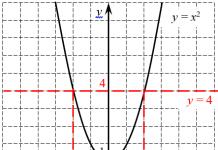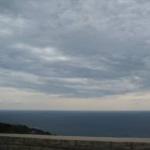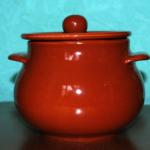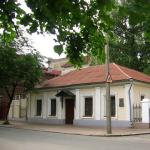Canvases made entirely of natural wood are called solid wood. Unpainted solid pine doors are in demand among a wide consumer due to their affordable cost and good performance. They are made in two ways: traditional, from a single piece of wood, and improved, from glued wood.
Pine is a soft wood species. In this regard, all categories of products from it have features:
- Sensitivity to mechanical damage. Careful operation will extend the life of the products.
- Hygroscopicity. Changes in room temperature or humidity should be avoided.
- An array of pine weakly holds metal fasteners.
- The canvas fades unevenly, changes color from getting on it sun rays.
Material such as pine is easy to process, so manufacturers offer wide selection models from it.
Design features of various models of wooden doors
Wooden doors distinguished by the method of opening, the number of paintings, design. These details affect the cost, ease of use and appearance the premises in which they are installed.
Common types of structures, depending on the method of opening:
- sliding;
- swing.
If there is enough space in the room, it is better to install classic swing doors from an array. They are also divided in the direction of opening into right-handed and left-handed.
If you need to save space, you should think about a sliding design. It provides for the presence of guides and a mechanism on a roller suspension located along the wall. There is an installation method in which the canvas slides into the false panel, and in the open state it is not visible. But such installation is quite expensive.

The number of canvases in both swing and sliding version depends on the width of the opening and the design decision of the owners of the house. There are single-leaf, double-leaf, and in the swing version and one and a half doors. Double field swing structures can be coordinated (when one sash is shifted, the other is moved automatically) and independent. For double-sided products, manufacturers must provide latches in the kit.
There are several ways to make a wooden canvas: from a solid array, rack (panel) and paneled hollow. The first option is the most expensive. The second one is slightly inferior in price, because its base is made of slats of inexpensive wood species, and on top it is pasted over with veneer of more noble wood.
A pine base cannot be veneered with other types of wood veneer - such blocks will be short-lived and quickly lose their original attractiveness. Paneled doors - the most a budget option. They are a frame made of solid wood, sheathed with MDF or fiberboard sheets.
Models are also distinguished by filling: they can be deaf or glazed. The functionality of all doors may differ depending on where they are installed. Products can have fire, moisture resistant, shockproof properties.

Benefits of unpainted canvas
Raw pine canvas is a semi-finished product. Such material has an advantage over finished products, because it makes it possible to create original models, unlike those that are abundantly presented in stores. In addition, there are a number of advantages for which it is worth choosing unpainted solid pine doors:
- more low price compared to dyed products. The savings will be especially noticeable when replacing several door blocks in the house at once;
- durability;
- on the unpainted massif of pine, the structure of wood is visible. It can be emphasized and ennobled by covering the product with several layers of varnish;
- environmental friendliness. Pine linen cannot be compared with products made of wood. chipboard boards and MDF. In addition, a product made from this type of wood during operation releases phytoncides into the air - substances with antiseptic properties;
- pine door has excellent sound and thermal insulation characteristics;
- the material has a low density, due to which it passes air well.

Features of care
In order for an unpainted pine door to retain its original appearance for as long as possible, you should adhere to the following rules product care:
- Avoid such methods of influence on the product, which can cause mechanical damage.
- Protect the pine canvas from direct sunlight.
- Relative Humidity air in the room should be within 30-70%, temperature - 10 ... 35ºС. It is unacceptable to find products in rooms with 100% humidity or moisture on the surface.
- Installation of blocks is carried out at the final stage of repair. When installing to fill voids, do not use cement mortar.
- Pine products should not be located near heat sources - radiators, heaters, stoves, etc.
- If liquid gets on the canvas, do not rub it on the surface. You need to take a matter that absorbs moisture well and gently blot the area.
- Wipe dust from products with a dry soft cloth.
- When caring for solid pine doors, products containing ammonia, acetone solutions, nitro solvents and solvents based on artificial resins should be excluded.

Design solutions
Unpainted pine doors will easily fit into any interior. In addition, they can be transformed by tinting special formulations or highlighting separate sections contrasting color. In order to unusually decorate the opening, you can paint the canvas in the same style as the interior.
There is a demand for such a service as artificial aging pine doors. In combination with similar furniture, they look expensive and stylish. At the same time, the technique of the craftsmen's work allows you to create spectacular antique products, while maintaining the original properties of wood. This fact will be appreciated by fans classical style in the interior.

Painting
If it is necessary to paint the door to match the design of the room, it is worth considering the nuances in the choice of paint and the procedure itself.
All coatings are divided into two large groups: transparent and opaque. The first includes varnishes, impregnations and glazes. Their advantage is high vapor permeability and protection of the pine massif from the harmful effects of ultraviolet radiation.
Opaque coatings for wooden doors are based on organic solvents. For pine, water-dispersion acrylic paints, alkyd polyurethane compounds and enamels.
The pine door for painting must be placed horizontally, so it is easier to avoid drips. You can work with a roller with a short pile, and a brush (if the canvas has uneven decorative elements). The most convenient way to apply the coating is with a spray gun.
After coating the door leaf with paint, you need to apply varnish. The order of application is as follows: first layer, fine-grained grout sandpaper, removing wood dust with a soft cloth and applying a second coat of varnish.
Conclusion
Doors made of solid pine for painting - great option for those who want to save money or create original interior premises. However, in addition to numerous advantages, they also have disadvantages that must be considered when buying and operating.

Even though we live in a century high technology and artificial materials, natural wood never goes out of style. Many pieces of furniture are made from it, as well as doors. Of course, compared to synthetic counterparts, they are less in demand due to their price, however, they have better performance characteristics. One of the most popular types of wood is pine, which is most often used in the production of door panels.



Peculiarities
Pine is the most common tree species in the world, and it grows especially well in Russia. Due to its special properties, it is used in the construction, furniture and engineering industries.
The texture of pine is uniform and durable, and most importantly, it has the ability to withstand some natural influences. Compared to other species, pine is less prone to warping during drying. Its strength is so high that only Caucasian fir can surpass it in this indicator.

The main feature of pine doors is their environmental friendliness, which has a positive effect on environment and human health. Due to their properties, they are in many ways superior to synthetic materials. Their use greatly reduces the risk of allergic reaction compared to non-natural products.
Pine wood is reliable and durable, so it can be found in almost all homes. Interior and entrance doors can last for decades, after which they can be restored for further use.
With proper care, they will not lose their original appearance even after a hundred years.

This natural material has thermal and soundproof properties that most don't have modern doors. But this only applies to quality products manufactured according to all international quality requirements. If they are equipped with a high-quality seal, then their positive characteristics increase several times.
Except their performance characteristics, pine structures have an unrivaled appearance that does not change when varnished or stained. Also, this tree is easily processed, which allows you to make products from solid natural pine of any unusual shape.
Another important advantage of pine products is its availability. Due to the fact that pine is not rare and valuable breed, its cost is somewhat less than the cost of other materials.



In addition to many positive qualities, pine has a number of serious disadvantages:
- It is like no other wood exposed to extreme moisture and temperature fluctuations. All this can quickly render it unusable, because it will swell and crack. But this problem can be solved if, in the production process, not whole wood is used, but glued wood, which has improved characteristics.
- It also needs to be looked after regularly. For the first few years, it is enough just to wipe the products with a damp cloth, and in the future you will have to resort to restoration. If they are annually subjected to painting or varnishing, then such layering will ruin them. And sooner or later you'll have to peel off the layers coatings and apply other means. Any wood is highly susceptible to mechanical damage, so you should be very careful about wood structures.


Which is better: alder or pine?
When choosing a wooden door, it is very important to purchase not only cheap, but also quality option. Many people make a choice between pine and alder, but sometimes they cannot decide which is better.
Speaking of alder, it can be noted that it has a dense and elastic structure, which is moisture resistant. Thanks to these indicators, alder has high tightness and sound insulation, which allows you to keep noise and drafts out of the room. This design can be installed even in rooms with high humidity and sharp drops temperatures.
Alder wood canvas is easy to process, which allows you to give it any shape and decorate it with carvings. You can decorate it with glass insert or veneer from other types of wood. Alder is quite durable, but, like others wooden crafts, through needs restoration for several years. If you do not update their appearance, they will lose their beauty.



Pine, despite all its positive properties, It has ability to absorb moisture, and therefore cannot be used for installation in rooms with high humidity. This is its main difference from alder, which does an excellent job with this problem. Otherwise, both breeds have identical characteristics.
Choosing from these two types of wood, it is necessary to rely on personal preferences and the purpose of the doors. Alder is best suited for installation in baths, saunas and bathrooms. Otherwise, both pine and alder canvases have the same indicators, which makes them equivalent to each other.


Kinds
Wooden doors are distinguished according to several criteria: according to the method of opening, the number of canvases, filling, functional purpose, location and method of transformation.
According to the method of plowing, they distinguish:
- Swing - able to open in one or two directions. It can be internal or external canvases, deaf or with glazing. Pine doors can have any design, including carvings. Swing products are well suited for installation in rooms where there is the necessary space.
- Sliding - able to open in both directions, which is why they are so often used for organization office space and hypermarkets. Some modern houses are also equipped with wooden sliding doors, which are decorated with glass inserts.
- Folding - designed to save a small space, so they can be installed even in a narrow doorway. Their opening principle lies in the ability to unfold and fold due to two or more parts.


Also, doors are distinguished by the following characteristics:
- Speaking about the number of canvases, doors can be divided into single-floor, double-floor and half-floor. Their number depends on the width of the doorway. Double-sided designs necessarily come with latches, not counting those relating to the model.
- Based on the filling of the door leaf, the door can be deaf or with glass. Glazed models are designed to allow additional light into the room and its visual expansion, while deaf options are needed for complete isolation.
- According to the functional purpose, it is possible to distinguish canvases intended for residential or public buildings, as well as special doors, which have additional features. Some can withstand fire, others can withstand impact and bullets, and still others can withstand moisture and volatile chemicals.
- According to the location of the product can be divided into input and interior. And according to their purpose - for hermetic, fireproof, protective and soundproof.



- wooden structures also distinguished by water resistance. They can be increased and normal water resistance.
- According to the method of transformation, partition doors, side and sliding doors are distinguished. They can be made in the form of a screen or blinds - it all depends on the room itself.
- Subdivide wooden canvases also in size. They depend on the width and height of the doorway, and therefore may have standard or individual indicators.
- The colors of pine products can be very different: white, black, brown and other shades. Unpainted models look best, which emphasize the naturalness of the array.
Some people prefer milky color or wenge, believing that they best emphasize the individuality of the home.

Various styles
For creating unique interior a space in which all inhabitants should feel comfortable, you need to take into account the general style of the house. Properly selected doors can transform the room and emphasize its features:
- Classic style represents conciseness and rigor of forms and proportions. Its task is to emphasize the sophistication and nobility of the owners of the apartment. Therefore, usually wooden canvases consist of a solid mass of pine, or are decorated with high-quality veneer. Color solution should have traditional shades that emphasize the naturalness of the material. Classical products can be decorated with patterns, stained-glass windows and glass.


- French Provence style appreciates the naturalness of materials and the authenticity of the elements. Pine doors should be painted in pastel colors and have an antique roughness. Whatever the paint, the structure of the wood must be visible. This is what will emphasize the individuality of the interior of the gentle Provence style.
- If the dwelling is in rustic stylecountry music, then the door frame should be simple and functional. Doors should be either hinged or pendulum and not have frills. When it comes to color, country appreciates unpainted materials that represent natural beauty.
- Very popular at the moment is Japanese style. It is important for him to acquire elegant and unusual designs that will save precious square meters. Sliding doors in the Japanese direction will help divide the space into functional areas. And to emphasize the style will help dark shades red, brown and cherry.



- Products in style modern may consist of veneer, glass or forged fittings. In their manufacture, curved lines and disproportionate forms are used, often dividing the canvas into unequal parts. You can decorate the surface with floral or marine motifs.
- For high tech ideal option door models will become simple forms, which will combine a glossy and matte surface. They can be decorated with glass or plastic inserts, and their color should be as clear as possible (black, white and gray).
- Strict styleempire designed to emphasize the luxury and wealth of the home, so the doors must be strictly symmetrical and consist of a solid pine tree. Carving, gilding and mirrors can decorate them. In this case, the use of bronze elements is mandatory.



How to choose?
When choosing a door from solid pine, you need to pay attention to its design, quality and purpose. It is also important to consider the manufacturer and prices in order to compare several similar products and choose the best option.
Wooden structures can be panel and panel. Paneled are framed decorative panel, and panel boards consist of a frame, which is sheathed with wood on both sides. The panel is usually made of pine, as is the frame of the canvas.
Used to make a door frame various breeds tree. The most popular are oak, birch, mahogany and pine. These materials are characterized by increased strength and environmental friendliness, in addition, they have many decorative possibilities.

The choice of a product directly depends on its purpose. For example, front doors should be massive and heavy in order to withstand external influences and protect the home from burglars and drafts. But interior structures should be as light as possible so as not to interfere with free movement around the rooms.
When choosing a canvas, it is important to pay attention to its shape and the number of constituent parts.
If the room for which the door frame is intended has a small quadrature, then you should pay attention to sliding systems. What if doorway has an oval shape, then the door should repeat it.


In the shop building materials it is worth carefully evaluating the appearance of the product in order to exclude the purchase of defective goods. There should be no chips, knots, bumps and cracks on the products, a exterior finish must have a smooth surface.
The best choice for the kitchen interior door with glazing. Glass can take up most of the box, or it can be staggered. For the living room and bedroom, a design with frosted glass is better suited, which will dim the light.
When choosing a pine canvas for entering an apartment or house, you need to put additional protection to protect your home in the event of a break-in. It can be an alarm or video surveillance. Experts advise strengthening front door a metal threshold, a seal and a reliable locking mechanism, and the insulated box must have a large thickness.
Published: April 2, 2015Doors and leafs door wooden deaf (DG)
Wooden interior door with a blank leaf, double door DG21-13, area 2.63 sq.m GOST 475-78, GOST 6629-88
General information
Brand (type) DG21-13, area 2.63 sq.m
Width, mm 1 272
Height, mm 2071
OKP code 5361110
Characteristics
Album r.ch. RS 8212

Wooden interior door with a blank leaf, single leaf DG21-12, area 2.42 sq.m GOST 475-78, GOST 6629-88
General information
Brand (type) DG21-12, area 2.42 sq.m
GOST, TU GOST 475-78, GOST 6629-88
Width, mm 1 170
Height, mm 2071
Manufacturers JSC "DOK-3", JSC "DOK-5"
OKP code 5361110
Characteristics
Description Wooden door block, internal, deaf, with a frame made of solid and glued wood. The thickness of the canvas is 40 mm. A box with a threshold section of 74x45 mm. For residential and public buildings
Album r.ch. RS 8212

Internal wooden panel door with a blind leaf, small-hollow filling of the shield DG GOST 475-78, GOST 6629-88, 24698-81
General information
Brand (type) DG
GOST, TU GOST 475-78, GOST 6629-88, 24698-81
Manufacturers "Woodworking plant branch of CJSC "Mospromstroy"
OKP code 536120
Characteristics
Description Wooden doors for residential and public buildings, as well as for administrative and auxiliary buildings and premises of enterprises in various industries National economy. Doors are manufactured in accordance with the requirements of GOST 475-78 and this standard according to working drawings approved in the prescribed manner.
GOST 6629-88
INTERSTATE STANDARD
Wooden interior doors
for residential and public buildings
Types and design
IPK STANDARDS PUBLISHING HOUSE
Moscow
INTERSTATE STANDARD
Introduction date 01.01.89
This standard applies to wooden internal doors for residential and public buildings, as well as for administrative and auxiliary buildings and premises of enterprises in various sectors of the national economy.
The standard does not apply to doors special purpose(including fire and soundproof) and doors made of fine wood.
1. TYPES
1.1. Doors, depending on the design, are divided into the following types:
G - with deaf canvases;
O - with glazed canvases;
K - with glazed swinging canvases;
U - with a continuous filler of canvases, reinforced for entrances to apartments.
1.2. Doors of G and O types are made with one- and two-leaf leaves, with small-hollow (lattice) filling of the leaves, with and without a threshold, with and without overlap, with and without lining, with and without boxes.
Type K doors are made with double-leaf leaves, with small-hollow filling of the leaves, without a threshold, without a lap, with or without lining, with boxes.
Type Y doors are made with single-leaf blind leafs, with a threshold, without overlap, without facings, with reinforced frames or without frames.
1.3. Doors manufactured in accordance with this standard are referred to as doors of normal moisture resistance.
1.4. The overall dimensions of the doors must correspond to those indicated in Fig. . The dimensions in the drawings of the standard are given for unpainted products and parts in millimeters. Dimensions of door openings are given in the appendix.
At the request of the consumer, it is allowed to manufacture doors of types O and K with sizes 24-12, 24-15, 24-19, as well as doors of type G with sizes 24-15, 24-19 with a height of 2071 mm.
It is allowed to manufacture double-leaf doors of types G and O with canvases unequal in width.
1.5. The following structure is set symbol(brands) of doors:
Symbol example glazed single-leaf door for an opening with a height of 21 and a width of 10 dm, right, with a threshold:
DO 21-10P GOST 6629-88
The same, deaf two-field for an opening 24 dm high and 15 dm wide, left, with a threshold:
DG 24-15LP GOST 6629-88
The same, with swinging canvases for an opening with a height of 24 and a width of 19 dm:
DK 24-19 GOST 6629-88
The same, reinforced, with a continuous filling of the canvas, for an opening 21 dm high and 9 dm wide, right:
DU 21-9 GOST 6629-88
The same, the leaf of a frameless door of type G, single-leaf for an opening 20 cm high and 7 dm wide, left, with a lap:
PG 20-7LN GOST 6629-88
2. CONSTRUCTION
2.3. Door leafs of type U must be manufactured with a continuous filling of the shield with calibrated thickness wooden slats or chipboard, as well as using width-calibrated chipboard strips laid on edge.
Examples of filling door leaf panels are given in the appendix.
2.4. The vertical bars of the U-type door leaf frame must have a width of at least 90 mm. It is allowed to cut the bars along the length on both sides. The depth of the slots is 5 - 6 mm, the width is 3 - 4 mm.
It is allowed to use bars with a width of 45 - 60 mm, glued along the side surface.
The horizontal bars of the frame must have a width of at least 45 mm and be connected in the corners with the vertical ones with glue in a spike or on dowels, brackets, braces.
Options for boxes with PVC lining for doors of types G, O without a threshold are given in the appendix.
Schemes for determining the left and right doors are given in the appendix.
The specification of glass for doors is given in the appendix.
2.14. The door purchase order must specify:
the number of doors by brand and the designation of this standard;
type and color of finish;
type and thickness of glass;
instrument specification.
At the request of the consumer, it is allowed to supply door panels without boxes and boxes without panels.
Door dimensions

Notes:
1 . Door schemes are shown from the opening side of the canvas.
2 . The numbers above the door schemes indicate the dimensions of the openings in decimeters.
3 . The dimensions in parentheses are for swing doors.
Design, shape and sizes of doors

Crap. 2 (sheet 1)

Crap. 2 (sheet 2)
Note . Sections of parts, see fig. .

Crap. 2 (sheet 3)
Notes:
1 . Sections of parts, see fig. .
2 . It is allowed to manufacture doors of type U with overall dimensions type G doors

1 - mounting board; 2 - patterned glass GOST 5533 or reinforced glass GOST 7481 , or window glass on GOST 111 thickness 4 - 5 mm
Crap. 3 (sheet 1)
Notes:
1 . The cross-sections of solid doors are similar to glazed ones, with the exception of glazing parts.
2 . Use of plastic layouts for fastening of glasses is allowed.
3 . It is allowed to use mounting boards of a different design.

1 - shield frame bars; 2 - lining
Crap. 3 (sheet 2)
Note . The width of a double-leaf door with an average rebate without a rebate bar is 12 mm less than that indicated in Fig. and .

1 - loop PN9-130 according to GOST 5088 ; 2 - window glass GOST 111 thickness 4 - 5 mm
Crap. 3 (sheet 3)

1 - sealing gasket GOST 10174 ; 2 - cladding of fiberboard brand ST or T group A with a thickness of 3.2 - 5 mm according to GOST 4598 or glued plywood brand FK 4 - 6 mm thick GOST 3916.1 and GOST 3916.2
Crap. 3 (sheet 4)
Note. It is allowed to manufacture type U doors with a frame width of 74 mm for interior doors and doors of public buildings.
ATTACHMENT 1
Reference
DIMENSIONS OF DOOR OPENINGS IN THE WALLS

Note. The dimensions of the openings for frameless doors are set taking into account the application.
APPENDIX 2
Recommended
EXAMPLES OF FILLING SHIELD DOOR LEAF

1 - spike, staple or paper clip; 2 - bars for installing a lock or handles; h- clearance width, not more than 40 mm; l- clearance length, no more than 400 mm; b- shift of rails relative to each other, not less than 50 mm
Crap. 5 (sheet 1)

Crap. 5 (sheet 2)
Notes:
1 . Example 1 - for a Y-type door, examples 2 - 7 - for a G-type door.
2 . For a leaf with a height of 2300 mm, the length of the bars for installing the lock and handles is 700 mm. Installation of bars - see example 3.
3 . When lining door panels of type G with fiberboard boards 3.2 mm thick, the width of the gap between the elements of small-hollow filling should not exceed 30 mm, and the length should not exceed 200 mm.
4 . Filling the blind part of the glazed sheets can be performed by analogy with examples 3 - 7.
APPENDIX 3
Recommended
Examples of installation of protective fences

1 - wooden planks
Note. It is allowed to use plastic, metal and wooden fences of a different design.
APPENDIX 4
Recommended
LOCATION OF INSTRUMENTS IN THE DOORS

1 - hinges PN1-110, PN1-85, PN2-110, PN2-85, PN3-110, PN4; 2 - handles RS100, RS140, RK1, RK2, locks and latches; 3 - gate valves ZT; 4 - hinges PV1-100, PV2-125 or screw and overhead hinges manufactured according to special specifications; 5 - locks ЗВ7А, ЗВ4; 6 - hinges PN1-130, PN1-150, PN2-130, PN3-130, PN3-150.
Notes:
1 . Door fixtures must comply GOST 5087, GOST 5088, GOST 5089, GOST 5090.
2 . Types of devices for doors of public buildings must be assigned in building projects.
3 . Hinges PN9-130 are installed in swing doors according to GOST 5088.
APPENDIX 5
Reference
BOXLESS LEAF HINGE

1 - wooden cork; 2 - steel plate; 3 - anchor; 4 - mortise loop; 5 - screw hinge card with a nut; 6 - sealing gasket
Crap. 8 (sheet 1)

1 - wooden cork; 2 - steel plate; 3 - anchor; 4 - overhead loop; 5 - sealing gasket; 6 - wooden threshold
Crap. 8 (sheet 2)
APPENDIX 6
Reference
PVC LINED BOXES

Note. Vertical elements boxes are connected to horizontal ones using spikes and steel dowels or screws.
APPENDIX 7
Reference
SCHEMES FOR IDENTIFYING LEFT AND RIGHT DOORS

APPENDIX 8
Reference
GLASS SPECIFICATION FOR DOORS
|
Door brand |
Size, mm |
Qty. |
|
|
Height |
Width |
||
|
DO21-8 |
1300 |
||
|
DO21-9 |
|||
|
DO21-10 |
|||
|
DO21-13, |
|||
|
DK21-13 |
|||
|
DO24-10 |
1600 |
||
|
DO24-12 |
|||
|
DO24-15, |
|||
|
DK24-15 |
|||
|
DO24-19, |
|||
|
DK24-19 |
|||
INFORMATION DATA
1 . DEVELOPED AND INTRODUCED by the State Committee for Civil Engineering and Architecture under the Gosstroy of the USSR
DEVELOPERS
Yu.A. Argo, cand. tech. sciences (topic leader); I.V. strings; G.G. Kovalenko; PER. Burkova; I.I. Kiseleva; N.P. Safonov, cand. tech. sciences; V.T. Sokolova; T.S. Slastenko, cand. tech. sciences; I.F. Savchenko; O.L. Bykovsky; N.D. Popkov; N.I. Zhukov; L.V. Voronkova; G.V. Levushkin; V.S. Ruchkin; N.B. Zhukovskaya; N.V. Swedes

















